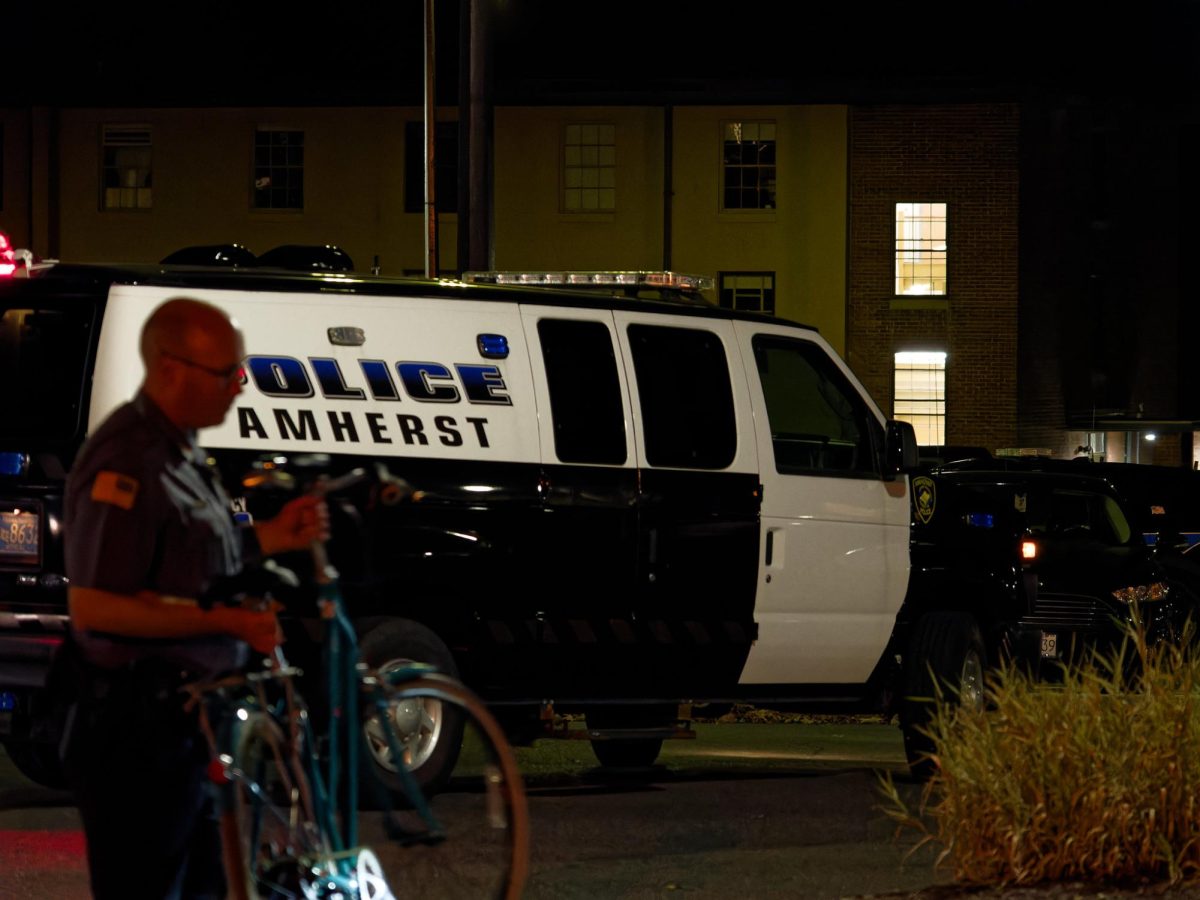Note: This article has been edited for corrections on information regarding the claim that many of the arrested students received academic probation due to their participation in the Whitmore demonstration.
The District Attorney of the Eastern Hampshire District Court announced last week that all protestors arrested during a sit-in demonstration at the University of Massachusetts Whitmore Administration building in October, will have their criminal trespassing charges reduced to civil infractions.
Civil infractions are essentially the same as a traffic ticket, said Rachel Weber, the attorney representing the arrested students who spoke at a press conference held following a pre-trial hearing for 10 of the students on Feb. 8.
Although all 56 students and one faculty member have undergone their pre-trial hearings and been notified of their reduced charges, roughly 20 students are planning to take their case to trial, according to Weber.
Co-President of the Students for Justice in Palestine (SJP) Ruya Hazeyen is planning to continue with trial proceedings. “Our decision to risk arrest at a peaceful protest and now to bring our case to trial is rooted in a fundamental belief in human rights, as well as an unwavering belief that we have nothing to plead guilty for,” she said during the press conference.
Weber detailed constructing a necessity defense, which entails examining Raytheon’s role in the Israel-Hamas war as well as the defense company’s relationship with UMass. She also discussed inviting people to speak on the conflict in Gaza and the West Bank in order to help understand why civil disobedience was necessary.
“It really is sort of drawing the connection… right from Amherst, from this region, all the way across the ocean, and it is incredibly connected,” Weber said.
In response to the International Court of Justice ordering that Israel prevent genocidal violence, Hazeyen said that the outcome “absolutely helps.”
“We didn’t need an international court to tell us that what is happening is genocide…But it does help us legally, I think it helps our necessity case,” said Hazeyen to the crowd.
Weber noted that the District Attorney’s decision to reduce the charges was a way of throwing the ball back in the University’s court. “And so now it’s up to the University to follow suit,” she said.
Aside from the court process, the students must navigate sanctions by the Student Conduct and Community Standards Office for violating the Code of Student Conduct.
Kala Garrido, a senior social thought and political economy major, said the specific code that they were in violation of was Section 4.1.5. b) of the Code of Student Conduct: Unauthorized Access/Presence/Use of Property.
Garrido said that they received University probation and were required to make a reflection. “A reflection involves writing a message to your future self, reminding yourself of your beliefs and values and what you’ve learned throughout the student disciplinary process,” Garrido said.
Sarah Hope, a master’s student in the sustainability science program, received the same requirement. “It could be in the form of an essay or a video and the only…restrictions they put on you are you can’t try and justify what you did,” she said.
It is unconfirmed if all students received identical sanctions, but Weber said that many students are on academic probation. Three students have also been denied the chance to study abroad over the Spring semester due to being arrested at the sit-in.
Update: While a claim was made that many students are facing academic probation, the University, in an emailed statement to the Collegian, said that no student involved in the demonstration has been placed on academic probation as a result of their actions. Academic probation is based solely on GPA and has no connection to the student conduct process.
Despite the court’s reduced charges, UMass Spokesperson Edward Blaguszewski said in an emailed statement that the University’s internal conduct process is independent of the court process and is still proceeding.
Hazeyen noted that SJP students have been doxed, harassed and put in harm’s way on campus. Hani Shaib, a junior social thought and political economy major, shared a similar sentiment during the Feb. 8 press conference. “UMass has openly cultivated a hostile environment on campus and ignored the safety concerns of their Palestinian, Arab and Muslim students,” he said.
The next scheduled court date is April 23 in Belchertown where an attorney’s conference will be held. Attorneys for the students and those prosecuting on behalf of the University will look over evidence and decide on a future date.
Note: This is a developing story. More updates will be added as information becomes available.
Jack Underhill can be reached at [email protected] and followed on X @JackUnderhill16




















